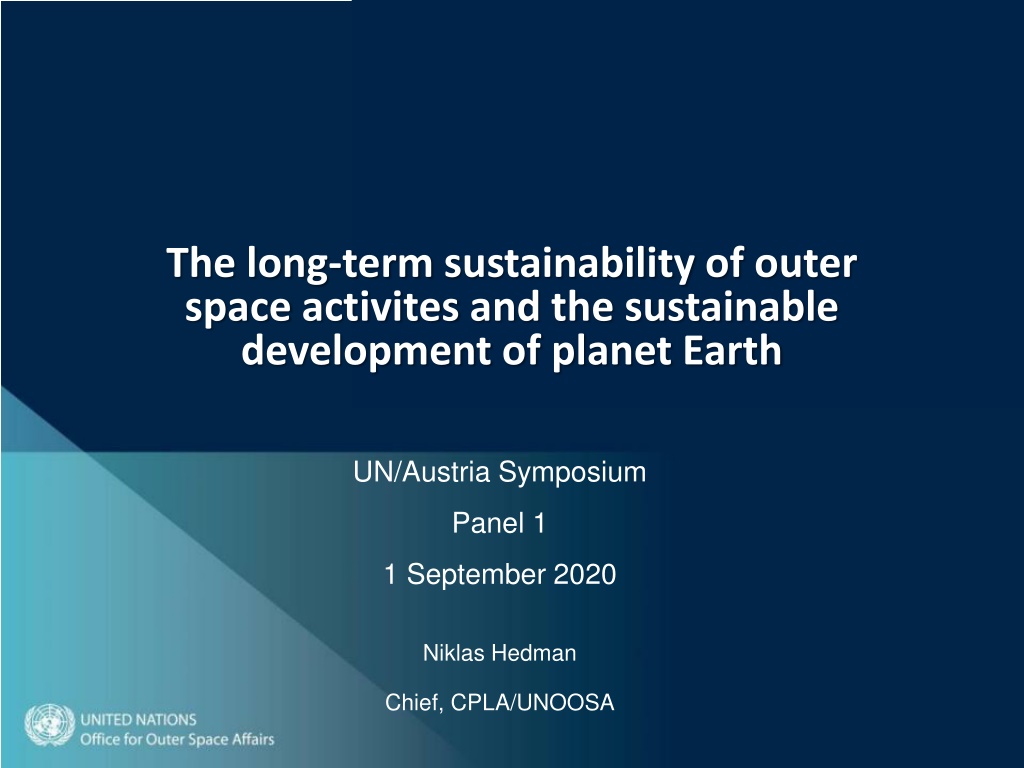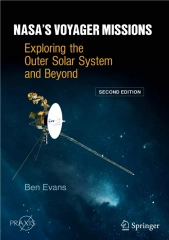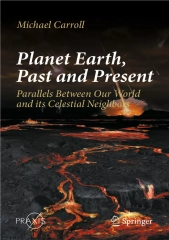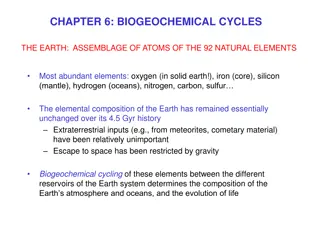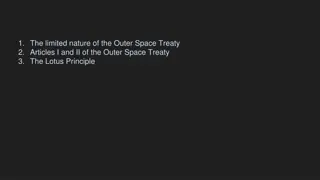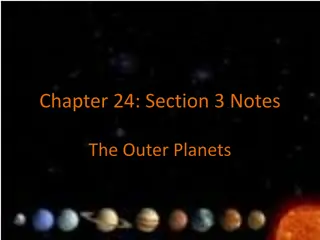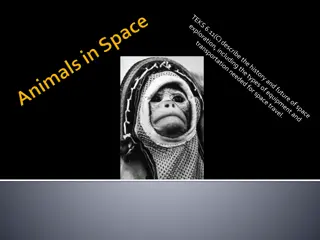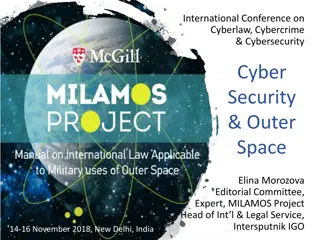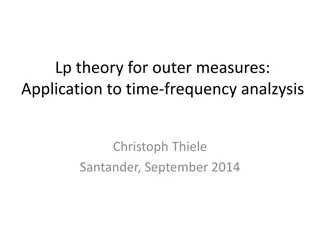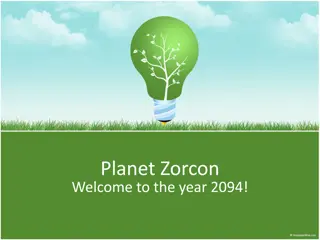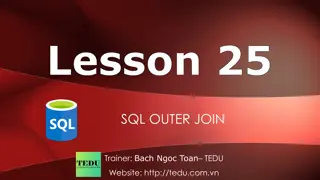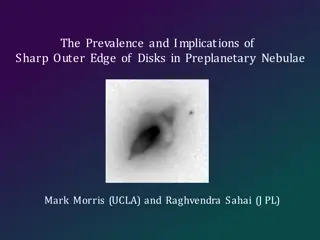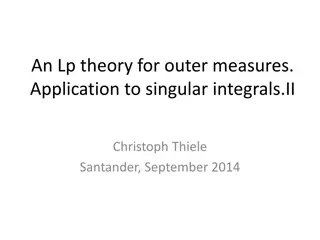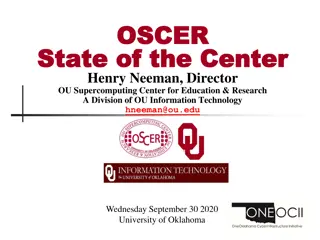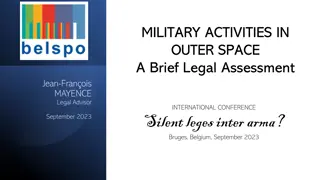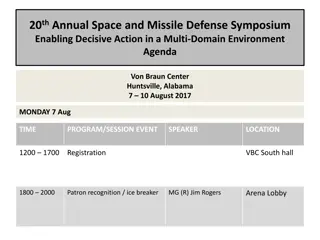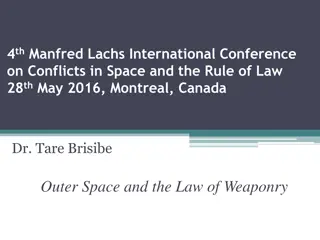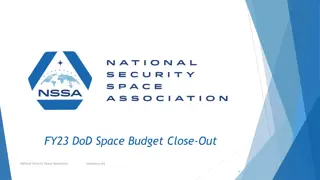Sustainable Development of Outer Space Activities and Planet Earth: UN/Austria Symposium Insights
Discussion on the long-term sustainability of outer space activities and its impact on Earth at the UN/Austria Symposium. Highlights COPUOS's role in promoting peaceful space use, international space law development, and space debris mitigation. It addresses key areas like space exploration, safety, climate change, disaster management, and global health. The committee has expanded its membership to 95 states and focuses on advancing space governance globally.
Download Presentation

Please find below an Image/Link to download the presentation.
The content on the website is provided AS IS for your information and personal use only. It may not be sold, licensed, or shared on other websites without obtaining consent from the author. Download presentation by click this link. If you encounter any issues during the download, it is possible that the publisher has removed the file from their server.
E N D
Presentation Transcript
The long-term sustainability of outer space activites and the sustainable development of planet Earth UN/Austria Symposium Panel 1 1 September 2020 Niklas Hedman Chief, CPLA/UNOOSA
Committee on the Peaceful Uses of outer Space (COPUOS) Reviews peaceful use of outer space, encourages space research programmes, and studies legal issues arising from space exploration Forum for developing of international space law. Has created 5 treaties and 5 principles of outer space Space Debris Mitigation Guidelines Safety framework for nuclear power sources (NPS) Guidelines for the Long-term Sustainability of Outer Space Activities GA resolutions on launching State, registration practice, national space legislation. Study on international frameworks COPUOS has expanded the number of States members from 18 (1958) to 95 (2020). Has 42 permanent observer organizations (IGO and NGO) 1959: COPUOS established by Resolution 1472 (XIV). Two subcommittees: Scientific and Technical Subcommittee (STSC) and Legal Subcommittee (LSC) Slide 1
Space Debris NPS Space and climate change Disaster Management Space and Water Space law Space Traffic Management (STM) Long-term sustainability of outer space activities (LTS) Space exploration Space resources Space Safety/Security TCBM Space and Global Health Space Weather NEO GNSS Slide 2
95 States members of COPUOS Algeria, Benin, Burkina Faso, Cameroon, Chad, Egypt, Ethiopia, Ghana, Kenya, Libya, Mauritius, Morocco, Niger, Nigeria, Rwanda, Senegal, Sierra Leone, South Africa, Sudan, Tunisia Bahrain, China, Cyprus, India, Indonesia, Iran, Iraq, Japan, Jordan, Kazakhstan, Lebanon, Malaysia, Mongolia, Oman, Pakistan, Philippines, Qatar, Republic of Korea, Saudi Arabia, Singapore, Sri Lanka, Syrian Arab Republic, Thailand, United Arab Emirates, Viet Nam Albania, Armenia, Azerbaijan, Belarus, Bulgaria, Czech Republic, Hungary, Poland, Romania, Russian Federation, Slovakia, Ukraine Argentina, Bolivia, Brazil, Chile, Colombia, Costa Rica, Cuba, Dominican Republic, Ecuador, El Salvador, Mexico, Nicaragua, Paraguay, Peru, Uruguay, Venezuela Australia, Austria, Belgium, Canada, Denmark, Finland, France, Germany, Greece, Israel, Italy, Luxembourg, Netherlands, New Zealand, Norway, Portugal, Spain, Sweden, Switzerland, Turkey, United Kingdom, United States Slide 3
Governance phases of COPUOS 1960 1980: Treaties 1980 2000: Principles 2000 2020: Resolutions, Guidelines 2020 - Slide 4
LTS: Preamble and 21 Guidelines Preamble and 21 Guidelines adopted by COPUOS at its 62nd session in 2019 (A/74/20, annex II) Voluntary implementation of the Guidelines. Not legally binding under international law Any action taken towards their implementation should be consistent with the applicable principles and norms of international law Nothing in the Guidelines should constitute a revision, qualification or reinterpretation of those principles and norms Nothing in the Guidelines should be interpreted as giving rise to any new legal obligation for States Reference to GGE-report on TCBM Review of implementation and updating of the Guidelines through COPUOS with the support of UNOOSA Slide 5
21 LTS Guidelines - key areas National regulatory frameworks, supervision of national space activities, enhance registration practice Safety of space operations (information exchange on space objects and events), improve accuracy of orbital data, sharing of space debris monitoring information, conjunction assessments (all orbital phases of controlled flight/pre-launch) Sharing of space weather data and forecasts/develop space weather models Design and operation of space objects (including small satellites), uncontrolled re- entry of space objects (risk assessment and consultation) Capacity-building, scientific and technical research and development Slide 6
Example of space governance projection Enhanced capacity-building and awareness Increased dialogue with private space actors Organized reporting on the implementation of the LTS guidelines and further development Structured information exchange on space objects and events STM Slide 7
